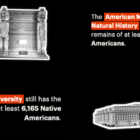Top 10 in Data Journalism
Data Journalism Top 10: AI Bias, Targeted Ad Labeling, Remote Work Trends, and Korea’s Space Industry
|
In this week’s Top 10 in Data Journalism, GIJN features a look at racial and gender bias in generative AI, how targeted advertising labels consumers, remote work trends post-pandemic, and the nascent Korean space industry.






